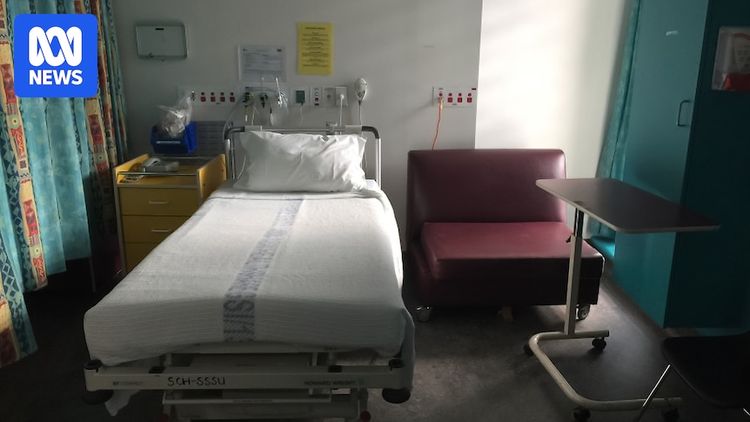Patients who will pay more for hospital care due to planned ending ...

A decision by Australia's second-largest private hospital operator to terminate contracts with two major private health insurers is set to impact about 6.6 million customers by March, 2025.
Healthscope on Friday ended agreements with Bupa and the Australian Health Services Alliance (AHSA), which covers 22 insurers and their customers nationwide, after the organisations refused to pay a proposed hospital fee to cover gaps in prices between insurance payouts and the rising cost of care.
Greg Horan, the Healthscope CEO, said the clash means Bupa and AHSA members could pay hundreds of dollars more for future treatment in Healthscope-run hospitals.
We've taken a look into whether Australian private health customers will actually face out-of-pocket hospital costs and whether they are able to negotiate better policy deals for themselves.
Will the contract terminations cost Australian private health customers?The short answer is that it depends on the type of surgery or treatment you need and whether you've already booked into a Healthscope-run hospital run to have it performed.
Healthscope's contract with Bupa is set to end on February 20, 2025 and its agreement with AHSA will be terminated on March 4, 2025.
Bupa said in a statement on Friday that its customers "remain fully covered under their hospital policy for admission to Healthscope hospitals until at least 20, February 2025".
A spokesperson from AHSA said the same thing: "Prior to 4 March 2025, members of AHSA member funds can still receive treatment at Healthscope facilities, under the current agreement, without added costs".
A Bupa spokesperson said patients with pre-booked treatments or elective surgeries can expect not to face extra costs under transition guidelines set out by the Commonwealth Private Health Insurance Ombudsman for hospitals and insurers.
Those guidelines say minimum insurance coverage conditions vary depending on the type of treatment or elective surgery a person is undergoing.
If a Bupa or AHSA-covered patient's treatment starts before February 20 or March 4 respectively, the ombudsman says the current terms of their private health cover should be honoured in full.
The same guideline exists for pregnancy and birth patients who have hospital bookings before those dates and should be covered without additional costs, according to the Ombudsman.
The guidelines say patients undergoing courses of hospital treatments like chemotherapy or dialysis shouldn't face extra costs for the period of their treatment or for up to six months after the date of Healthscope's contracts ending.
"Insurers and hospitals should be flexible with this timeframe if the patient's particular circumstances make it difficult for them to access alternative services within this timeframe," the guidelines say.
For people admitted to hospital in significant pain or life-threatening emergency situations, the guidelines suggest private health cover terms should be honoured in full for at least three months.
The ABC has contacted Healthscope for further comment.
Will Australians pay more if they haven't already pre-booked?If you need an elective surgery or course of treatment in a Healthscope hospital that isn't booked in by February 20 or March 4, you will likely face out-of-pocket costs to cover the price gap.
A spokesperson from AHSA said those out-of-pocket costs will be determined by transitional agreements put in place by Healthscope and private health insurers.
If you choose to have a surgery or treatment performed at another hospital which isn't run by Healthscope, you should still be covered in full without additional costs.
"Patients have the option to go to any of the other 500 private hospitals we have contracts with," an AHSA spokesperson said in a statement.
"Patients should discuss this situation with their doctor and whether there are any alternate hospitals to Healthscope hospitals that they can attend to minimise any potential out of pocket expenses they may incur."
Where are Healthscope's hospitals?Healthscope is owned by the North American private equity group Brookfield and runs 38 private hospitals across every state and territory in Australia.
The ACT, Northern Territory, Tasmania and Western Australia each have one Healthscope facility: National Capital Private Hospital, Darwin Private Hospital, Hobart Private Hospital and Mount Hospital respectively.
There are four more in South Australia including Ashford Hospital, Flinders Private Hospital, Griffith Rehabilitation Hospital and The Memorial Hospital.
Queensland has five locations run by Healthscope including Brisbane Private Hospital, Gold Coast Privaet Hospital, Peninsula Private Hospital, Pine Rivers Private Hospital and Sunnybank Private Hospital.
New South Wales and Victoria are home to the highest number of Healthscope hospitals of any state or territory, with 13 and 14 each respectively.
In NSW, the facilities stretch from the south-west of Sydney to the Tweed along the Queensland Border. In Victoria, the hospitals are mostly located in the Greater Melbourne area.
Can I negotiate for a better deal with my insurer?You can always negotiate for a better deal but if you've got a current contract with your private health insurer, it might cost you to start a policy with new terms and conditions.
Spokespeople from Bupa and AHSA told the ABC that customers should speak directly with their insurers if they want to find out the renegotiation options available to them.
Dr Rachel David, the CEO of Private Healthcare Australia, said in a statement on Friday that medical practitioners at Healthscope-run hospitals should also work with patients to get the treatment they need without paying more for it.
"In most locations, alternative hospital providers with more stable finances are available," she said.
"There are empty beds and operating theatre capacity around the country, in some cases right next door to a Healthscope hospital."













































